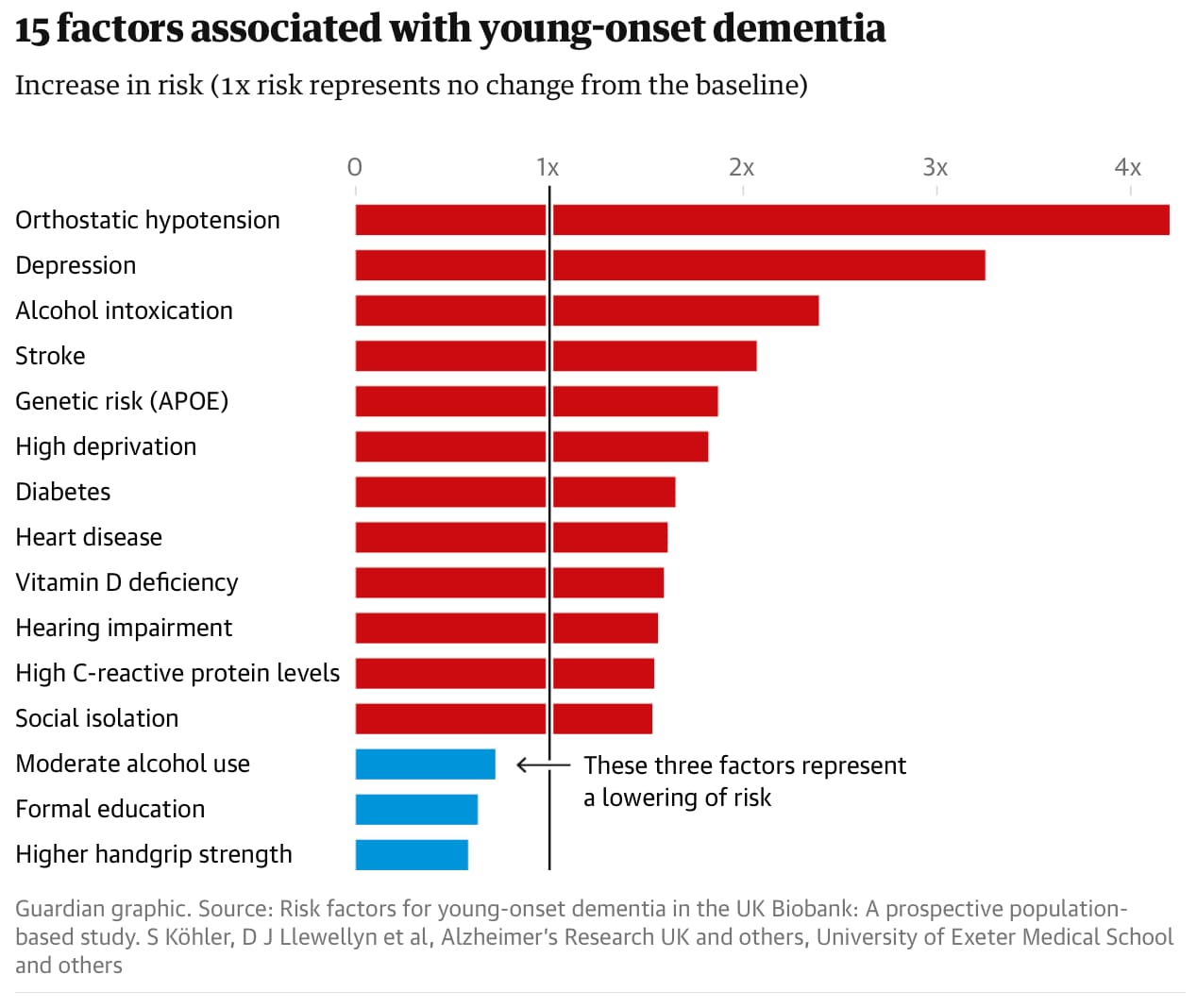Findings In this cohort study including more than 356 052 participants in the UK Biobank, there were multiple modifiable and nonmodifiable risk factors for YOD. Alcohol use, higher formal education, and lower physical frailty (higher handgrip strength) were associated with lower risk of incidence of YOD, whereas increased risk of YOD was associated with low socioeconomic status, apolipoprotein E status, alcohol use disorder, social isolation, vitamin D deficiency, high C-reactive protein levels, hearing impairment, orthostatic hypotension, stroke, diabetes, heart disease, and depression.
Paywalled Paper: Risk Factors for Young-Onset Dementia in the UK Biobank
Press report on this newly-published study:
2 Likes
Young onset dementia (before age 65) is usually not due to ApoE4’s (which even when homozygous will mostly start becoming symptomatic in the late 60’s and through the 70’s), but instead lifestyle and potentially some other genes such as:
PSEN1 – strongly associated with early onset AD
PSEN2 – strongly associated with early onset AD
APP – strongly associated with early onset AD
This article looking at metabolic syndrome and young onset dementia is interesting and probably only partially paints the picture as I suspect the 24% increase will actually be much higher than this if they followed them for a few more years.
For those of us wanting a solid healthspan, it is really important to optimize insulin sensitivity, serum insulin, glucose levels, blood pressure, visceral fat and lipids. Having these items non-optimized is slowly eating away at individual’s brains. Add some tobacco and heavy drinking and it’s a mess.
I see this on my ER shifts every day - folks who are in their 40’s who are so mentally slow to respond and truly cannot comprehend or meaningfully respond to fairly straight-forward questions.
1 Like
